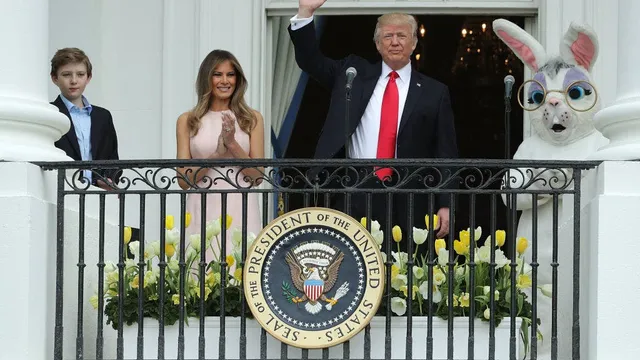
Trump promises trade deal with Europe during Meloni’s visit
2025-04-21 08:00- President Donald Trump and Italian Prime Minister Giorgia Meloni discussed trade negotiations in Washington, D.C.
- The U.S. and the EU are expected to finalize a trade deal before potential tariffs take effect in June.
- Both leaders expressed optimism about reaching a fair agreement that benefits both parties.
Express your sentiment!
Insights
On Thursday, April 16, 2025, amid an ongoing pause on harsh tariffs against the European Union, President Donald Trump met with Italian Prime Minister Giorgia Meloni in Washington, D.C. This significant meeting aimed to negotiate a trade deal as tariffs affecting Europe were set to potentially go into effect in June. Trump expressed confidence in securing a deal, stating, 'There will be a trade deal, 100%.' He emphasized that both the U.S. and the European Union were eager to finalize an agreement, highlighting the desire for constructive dialogue on trade. Meloni, as the first European leader to visit Washington post-tariff pause, shared a positive outlook on achieving a deal, emphasizing the necessity for balance in addressing the needs of both the U.S. and the EU. At this meeting, they also discussed other global issues, including defense spending and immigration policy. Trump's previous announcement of a temporary pause in a proposed 20% tariff on EU goods to 10% reflected a willingness to engage in negotiations, which more than 75 countries expressed interest in following his administration's tariffs imposed earlier in April. For Meloni, her role in fostering U.S.-EU relations became increasingly pivotal as she sought to bridge gaps created by tensions over tariffs, promoting cooperation to enhance mutual economic stability. As part of the meeting, both leaders expressed their commitment to fair dealings and constructive negotiations moving forward. Overall, the talks highlighted a critical juncture in U.S.-EU relations, as both leaders sought to navigate the complexities of international trade while also addressing broader geopolitical concerns in a fluctuating economic landscape.
Contexts
The impact of tariffs on US-EU trade relations has been a critical topic of discussion in recent years, particularly in the wake of shifting policies and economic tensions. Tariffs, defined as taxes imposed on imported goods, can influence trade dynamics by altering prices and demand for products between countries. Historically, the imposition of tariffs has led to retaliation, further exacerbating trade disputes. This report explores the multifaceted effects of tariffs on trade relations between the United States and the European Union, examining economic ramifications, shifts in supply chains, and broader geopolitical implications. The introduction of tariffs often aims to protect domestic industries from foreign competition; however, it can lead to increased costs for consumers and disrupt existing trade agreements. For instance, when the US imposed tariffs on steel and aluminum imports, it triggered a strong response from the EU, which countered with tariffs on US goods ranging from motorcycles to bourbon. The consequent price increases and potential job losses in affected sectors highlight the interconnected nature of the US and EU economies, as many industries rely on raw materials and components sourced from each other. Thus, tariffs not only impact the prices of goods but also affect the stability of supply chains that have been built over decades. Moreover, tariffs can lead to an increase in protectionist measures, undermining the principles of free trade that the US and EU have long championed. As both sides continue to impose tariffs, the deterioration of trust could hinder negotiations on future trade agreements. The escalation of trade barriers can also divert attention from other pressing global challenges, such as climate change and public health. Cooperation between the US and EU is essential for addressing these issues effectively. Instead, the focus on tariffs may limit opportunities for collaborative efforts to foster sustainable economic growth. In conclusion, while tariffs might provide temporary relief to specific domestic industries, their long-term effects on US-EU trade relations can be detrimental. The imposition of tariffs disrupts established trade flows, raises consumer prices, and encourages retaliatory measures that further strain relations between these economic powerhouses. To navigate these challenges, it is crucial for both the US and EU to engage in meaningful dialogue aimed at reducing tariffs and nurturing a trade environment that benefits both parties. By focusing on collaboration rather than confrontation, both sides can pave the way for a more stable and prosperous economic future.